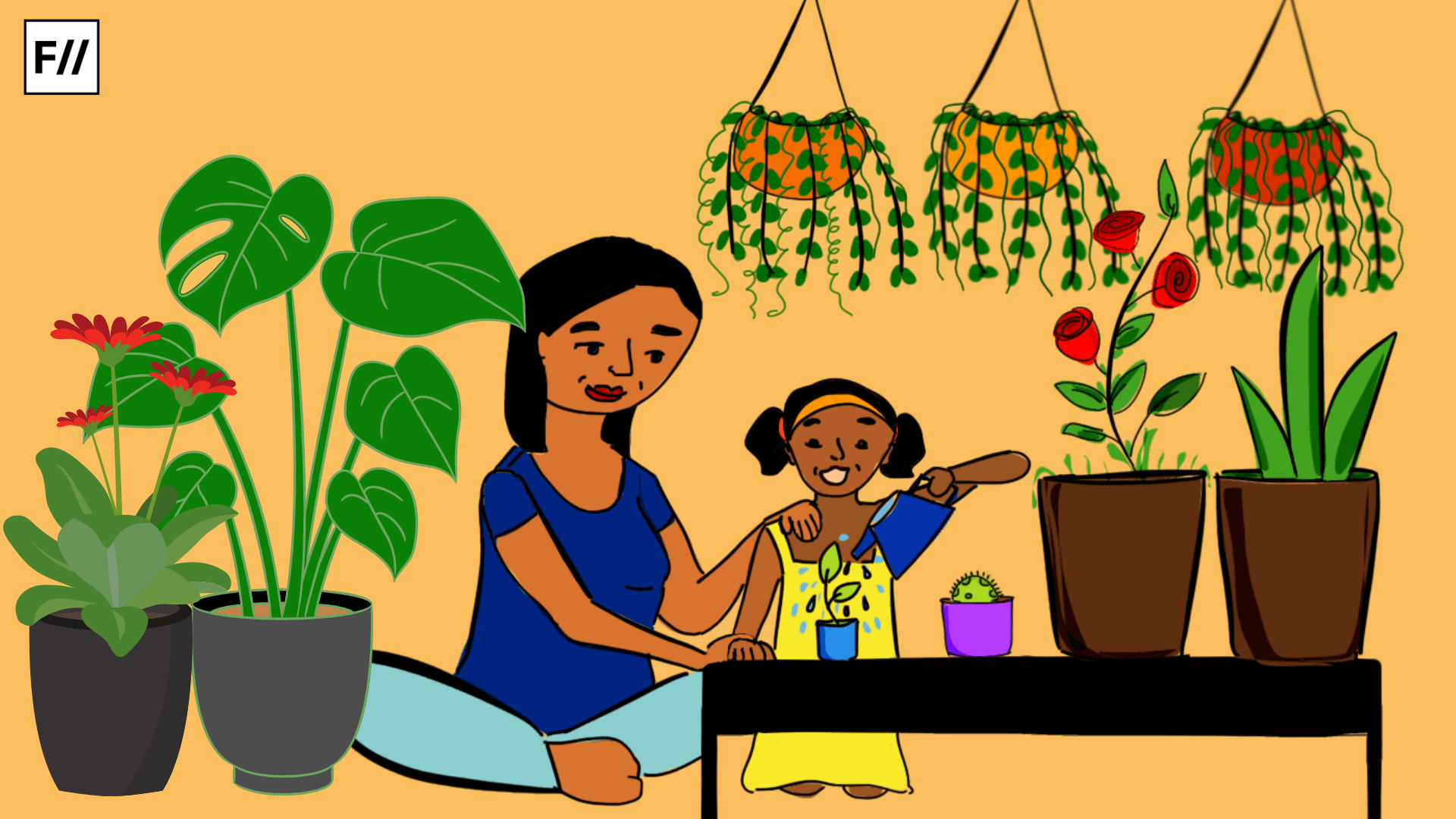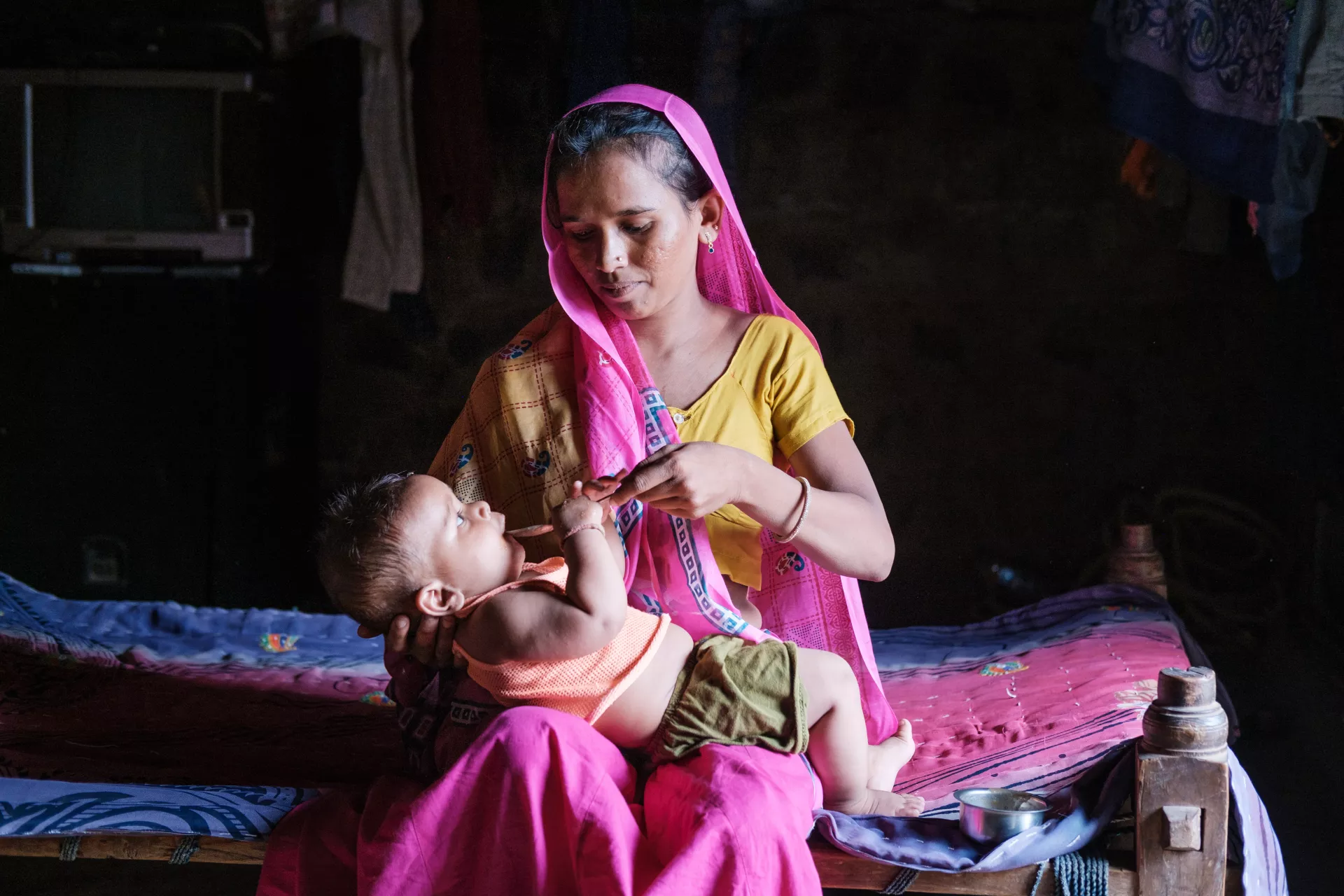Motherhood in urban India has been undergoing significant changes as traditional values and modernity collide in the current day. The roles of mothers, however, continue to be influenced by societal structures, economic pressures, and individual aspirations.
According to Helena Rutherford, an Associate Professor at Yale School of Medicine, motherhood is still considered “a normal crisis” due to the major psychological, biological, and neural changes that occur during pregnancy and after giving birth.
However, the idea that maternal instinct is a natural and instinctive reaction to becoming a mother isn’t backed up by scientific evidence. There are lots of things, like social norms, culture, and personal variations, that can influence how mothers engage with and take care of their kids.
The idea of maternal instinct has caused a lot of arguments and examination in different studies and conversations. Some people think it’s a natural part of being a mother, influencing how she acts and responds to her child, while others disagree and say it’s just something that women automatically have.
In the busy streets of Kolkata, amid all the noise and chaos, most women are still trying to find a balance between what society expects from them and what they want for themselves, as they try to figure out who they are.
The glorified myth of Mother India
Dr Shaoni Shabnam, a sociology professor at St. Xaviers College Kolkata, takes a deep dive into how the social scene in our country influences how women see motherhood and taking care of others. She explains, ‘In India, the way people see and experience motherhood can be different depending on their social class, caste, community, and where they live. But overall, there’s a strong cultural belief that being a mother is amazing, like the idea of ‘Mother India.“‘
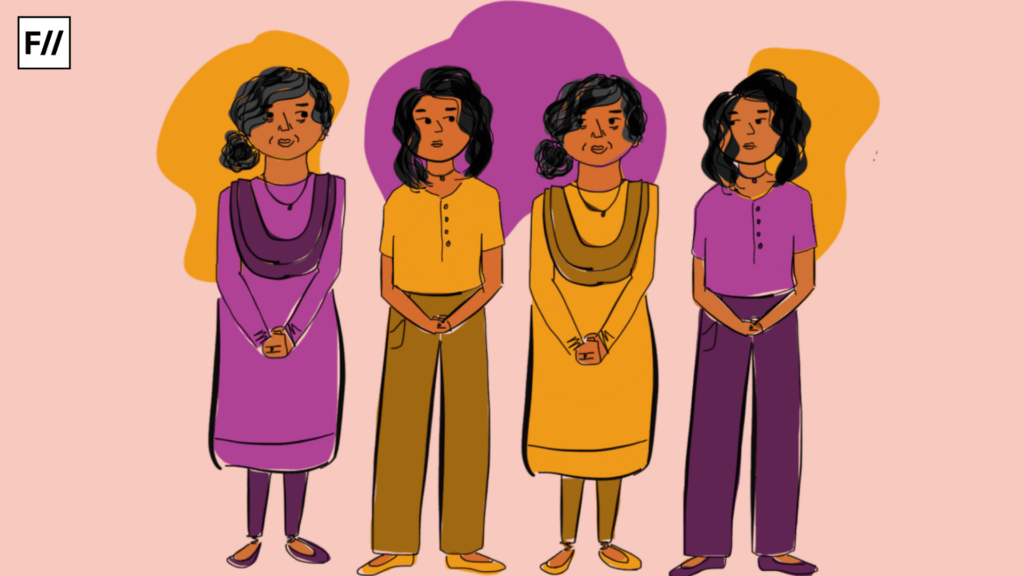
But she wants to mention that this idea can be tough for working-class women. They don’t always have the same opportunities and support for taking care of their kids.
She adds, ‘Middle-class women might have better access to healthcare and professionals, but they still struggle with feeling guilty about being a mom. And if you’re single or LGBTQ+, it can be even more challenging to become a mom in a society that’s mostly run by men.’
The complementary social status that comes with motherhood
The Pulse explains that commonly used phrases like the “biological clock” or “baby fever” create the impression that women are naturally inclined to desire children. However, it is not unusual for women to have difficulty feeling an immediate bond or love for their newborns.
Dr Shoma Chowdhury Lahiri, an Assistant Professor in the Sociology Department at St. Xavier’s College Kolkata, has some really interesting things to say about motherhood. She dives into all the different aspects of it, like how society views it, the emotions involved, and the experiences that come with it.
Reflecting on her experience, she states, ‘When you become a mom, at the age of 37 in my case, you suddenly become responsible for another person and that can be scary.’
Dr Lahiri points out how society views motherhood, highlighting how it is connected to social status, ‘Being a mom is all about motherhood, respect, and social status. It’s about being included in rituals and spaces that are reserved for married women with children.’
She acknowledges the immense pressure mothers face in living up to societal ideals, lamenting the lack of a definitive instruction manual for navigating the complexities of parenting, ‘There’s no instruction manual for being a mom. Society expects us to carry on and perpetuate the ideal of being a mom because that’s what they want.’
Dr Lahiri also touches upon the socioeconomic disparities in family planning, stating, ‘Lower-class women tend to have more children because their survival depends on it. Their life expectancy is not high and they struggle, so having more children is like having an increased number of resources.’
How internalised are maternal instincts at the corporate and grassroots levels?
According to Discover Magazine, scientists suggest that maternal instinct isn’t exactly backed by science, highlighting the hormonal changes mothers undergo during pregnancy, breastfeeding, and caring for a newborn, which prime them for caretaking.
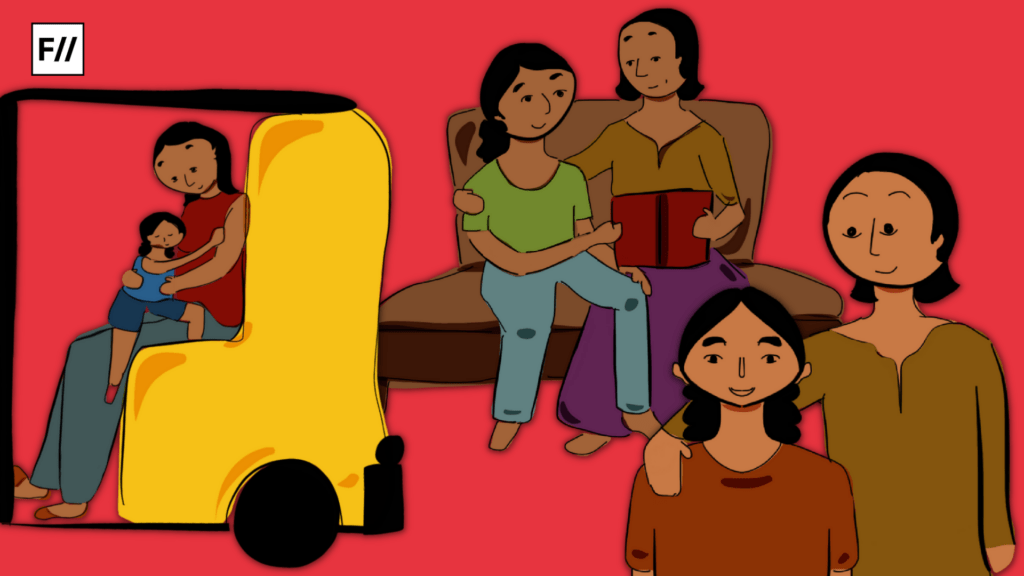
Mrs Prakriti Pramanik’s experiences in corporate offices strongly align with this notion. As a dedicated working mother, she faces the challenge of finding a harmonious balance between her career ambitions and her maternal duties.
She emphasises, ‘For many women in India, balancing a career and motherhood is like constantly juggling two roles. The pressure to succeed in both areas can be too much to handle sometimes.’
Mrs Pramanik’s experiences show how hard it can be for Indian women nowadays to balance their careers with the complexities of being a mom. But even with all the obstacles, she believes in creating a work environment that embraces and helps women juggle their many roles in society.
She further says, ‘Women in India need workplaces that embrace diversity and offer flexible policies to accommodate the needs of mothers. I can only connect so much with my daughter over a phone call once she comes home from school!’
Mrs. Pramanik’s journey symbolises the struggles that modern Indian women go through as they manage societal pressures, personal aspirations, and biological realities.
On the flip side, Ms Tarini Ghosh is putting in a lot of effort to offer healthcare services to underprivileged women in North Kolkata. She’s determined to bridge the healthcare gap for these women.
Reports from the National Sample Survey of 2004 indicate that the majority of the poorest households in India pay more than 40 per cent of their capacity for maternal health services.
Ms. Ghosh talks about the challenges that women from low-income households face. She focuses on how the differences in wealth can make it hard for them to access important healthcare services for mothers. These differences also make it more likely for health inequalities to continue, especially in communities that are already marginalised.
In these communities, women often have a tough time getting the medical support they need when they’re pregnant or giving birth. She states, ‘Many women are part of low-income households where money is a big problem when it comes to getting proper healthcare during pregnancy. It can be really expensive for families to pay for all the doctor visits, tests, and delivery costs.’
People often believe in the existence of maternal instinct. However, she emphasises that various obstacles and financial problems in society can hinder a mother’s natural nurturing abilities.
A 2021 study found that marginalised individuals, particularly women from socially disadvantaged and ethnic minority backgrounds, have extremely restricted the availability of maternal health services.
Ms Ghosh agrees, ‘A lot of women in marginalised communities don’t know how important it is to get proper healthcare during pregnancy. They may also not know about the resources that are available to them. Because of this, they might not seek medical help when they need it and miss out on important healthcare services during pregnancy and childbirth.’
She sheds light on the harsh realities faced by marginalised women in society, highlighting how their maternal instincts act as a crucial support system in the face of systemic difficulties. Ms Ghosh shares, ‘I remember this mom who lived in a tough neighbourhood and had a hard time with money and healthcare. But she made sure to look for help from our community to make sure her son, who is now four, got the healthcare he needed.’
The pressures of society and money significantly impact how women experience motherhood in this environment. To alter people’s perceptions of motherhood and caring for children in impoverished urban areas, Ms Ghosh suggests addressing these challenges and making it more accessible for women to receive healthcare during pregnancy.
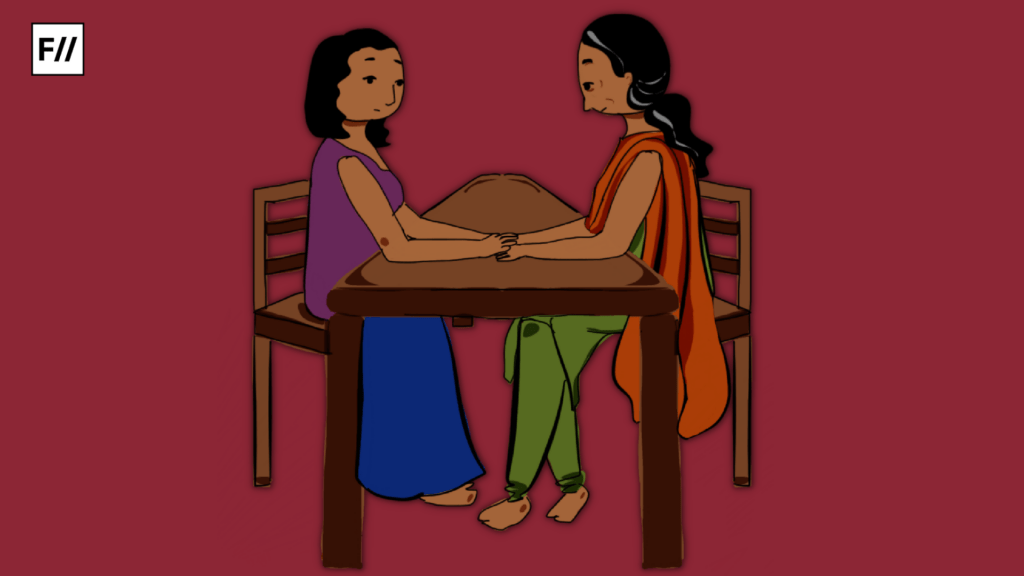
Motherhood in urban India is a whole different ball game, challenging old-fashioned ideas and showing why gender equality and empowerment are so necessary. Becoming a mother is no walk in the park, especially when society expects you to have a magical maternal instinct. We have to face reality and recognise that motherhood is far from perfect, instead of chasing after an unrealistic, picture-perfect image.
Being a mother involves lots of different feelings and things that happen. It’s important to help and cheer on moms and to recognise how strong they are. We should change the way we talk about being a mom in cities in India by listening to and sharing stories from all different kinds of families and parents.
In our journey toward gender equality and social justice: We must challenge the age-old yet demanding ideal of maternal instinct. We need to embrace the complexity of motherhood. By recognising the difficulties and appreciating the strengths of mothers: We can truly respect the impact of caregiving by not keeping its function gendered and myth-fuelled.
About the author(s)
Sohini (they/she) hails from Calcutta and loves to explore and write about all things society, culture, gender. With a background in journalism and English literature - they have finally been able to make having heartfelt conversations a huge part of their life outside of boxes.
